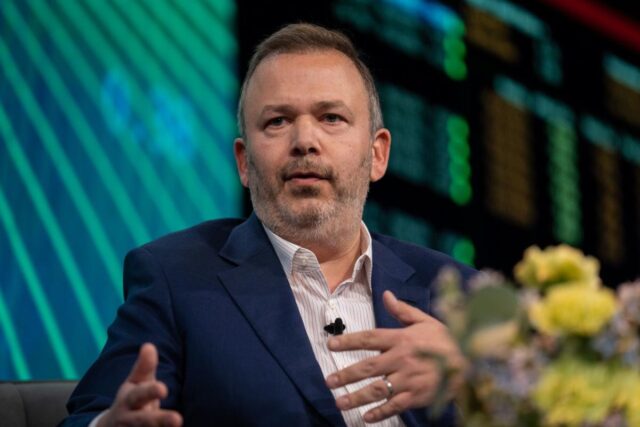(Bloomberg) — Boaz Weinstein is building up positions across UK investment trusts that now account for about a quarter of his $5.4 billion bet on closed-end funds trading near historic discounts.
Most Read from Bloomberg
Saba Capital Management started running a fund focused on UK trusts late last year and has re-opened an office in London after its last one was shuttered in 2017, according to a person familiar with the matter, who asked not to be named as the details are private.
The hedge fund has invested in 36 UK trusts either through direct holdings or swaps, according to the latest filings compiled by Bloomberg. His targets include funds managed by JPMorgan Asset Management, BlackRock Inc., Schroders Plc and Baillie Gifford.
“In the UK, it’s really an opportunity because there’s better governance,” Weinstein said in an interview in London, pointing out the stronger rights of shareholders to call meetings and vote their shares. “It’s highly unusual for the discounts to be this big.”
Share prices in closed-end trusts sank last year as a series of interest-rate hikes ripped through global markets and made it harder for trusts to beat the yields available on risk-free assets.
Managing about £267 billion, the trust industry in Britain is among the world’s largest, and the average discount widened to 16.7% in October, the most since the global financial crisis. The discount has since narrowed to 9.5% last month, according to data from the Association of Investment Companies.
Pushing Discounts
Weinstein — a veteran derivatives trader known for bringing down the London Whale — is already waging a campaign to close discounts at US firms, last year winning legal cases against BlackRock and Nuveen.
In the UK, he’s mounted an activist campaign against Alexander Darwall’s £600 million European Opportunities Trust, which was a longtime investor in failed payments firm Wirecard AG and held Grifols SA, a medical company targeted by short-seller Gotham City, as of the latest filings.
“By their own benchmark, not mine, they have so massively underperformed they have cost their shareholders hundreds of basis points a year,” Weinstein said. “It will within months be at a bigger discount — that’s our prediction.”
Devon Equity Management, which runs EOT, declined to comment. The fund has beat the MSCI Europe Index by about 7% over the past year, paring its five-year underperformance to 27%.
Weinstein’s criticism of EOT echoes his broader gripes against the industry about high fees and managers not doing enough to close discounts.
Unlike open-ended funds, trusts raise cash by issuing shares, which then trade on an exchange. Since the trusts don’t have to directly fund redemptions, they can take a long-term view and invest in less liquid assets such as music royalties or small-cap companies. Managers, overseen by a board of directors, can close discounts by buying back shares, converting into an open-ended structure or, in the most extreme cases, liquidating the fund.
In the case of EOT, Saba started building up a stake to agitate for liquidation around late-2023, when the trust was trading at about a 10% discount. Saba failed to garner enough shareholder votes for its plan, but the trust then offered to buy back some shares at a value above its current share price.
In recent sessions, Saba has lowered its stake in EOT, while adding to its holdings in the £1.2 billion Herald Investment Trust, filings show.
While Weinstein’s campaign so far has focused on trusts investing in liquid stocks and bonds, he says the Hipgnosis Song Fund, which owns the music royalty rights from the likes of Red Hot Chili Peppers and 50 Cent, looks “interesting.” The trust, whose manager has a partnership with Blackstone, is trading at 54% below its last reported asset value.
Weinstein accepts there’s a reason for the closed-end fund structure to exist, and thinks the majority is well run — except in cases where the board is too beholden to management.
“If you look at what has happened to asset management, fees over the last 20 years have come down a lot,” he said. “So the fees are a little high and the governance is bad because they are in some cases greedy.”
–With assistance from Yiqin Shen.
Most Read from Bloomberg Businessweek
©2024 Bloomberg L.P.




